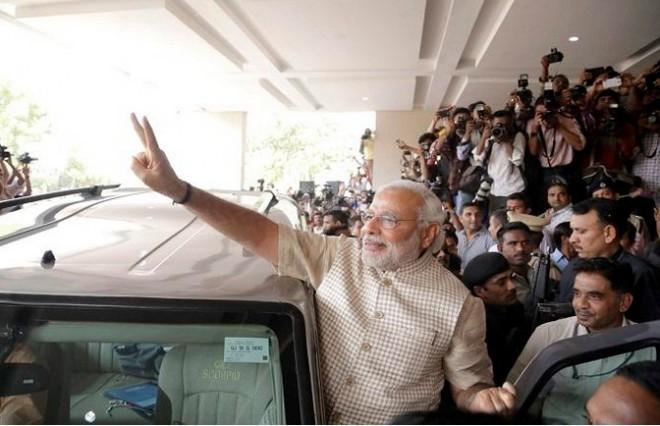
The US investors, who remain "overweight" in the country, complain that they haven't observed any change on the ground even after the Narendra Modi-led government completed one year in power in India, according to a report by a leading American bank.
"We met equity investors in New York and Boston last week. While almost all are overweight on Indian equities, there are indubitable concerns that nothing is really changing on the ground," Indranil Sen Gupta, India economist at Bank of America-Merrill Lynch (BofA-ML), told NDTV Profit.
The bank expects the Reserve Bank of India (RBI) governor, Raghuram Rajan, to cut key policy rates by 25bps at its next meeting on 2 June.
The US-based brokerage firm said that the rate cuts by RBI will have more impact on growth than "big ticket reforms".
"There is greater acceptance of our standing view that the turn in the growth cycle will depend far more on the global economic cycle and lending rate cuts at home rather than reforms," he said.
The bank expects the RBI to pause after a rate cut in June so as to assess how markets react to expected interest rate hike by the US Federal Reserve in September.
The Federal Reserve hike, earnings, and Bihar polls would be the "biggest swing factors" for the domestic markets in the coming months, he said.
He highlighted that RBI's move to cut rates can only be helpful in reviving the economy and reforms don't have to play a priority role, a view that sharply contrasts with other investors, who pulled out money from the domestic stock and debt markets, disappointed over the slow pace of reforms.
"Reforms will raise potential growth medium-term and the result will come only in say 5 to 10 years," Gupta further said, indicating the impact of the 1991 reforms that resulted in potential growth after almost 10 years.
The American bank believes the strength in the global economy to play a major role in pushing the country's growth higher and not the government which rules it.
"The Indian growth cycle depends far more on the global growth cycle rather than who rules in New Delhi," Gupta said.
Further, he expects India to emerge as the second-largest emerging market after China this year, with its gross domestic product (GDP) growth surpassing that of Brazil and Russia, this year.
Gupta also disagrees with the expectations that goods and services tax (GST) will have a huge positive impact on the GDP growth saying the markets are excessively pricing in advantages of GST.









